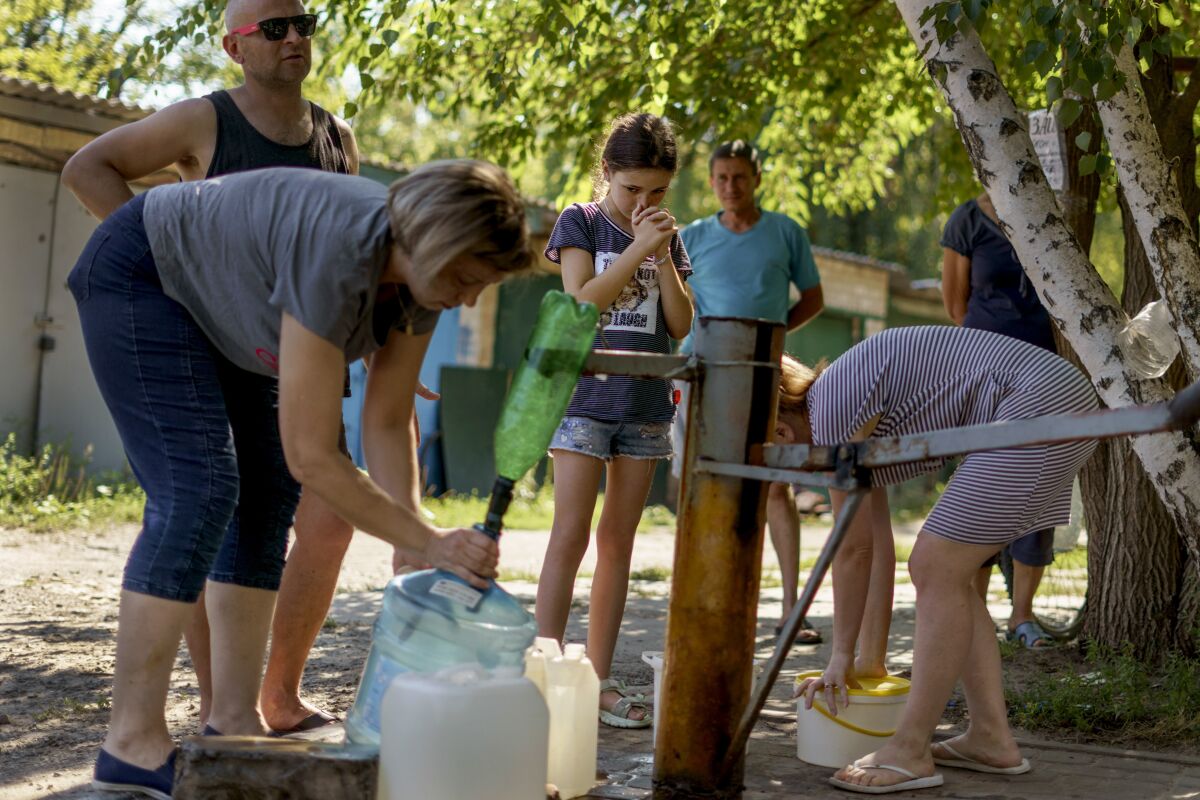In the aftermath of a recent dam breach that occurred earlier this month, homes have been destroyed and families left without access to water in Ukraine. The Kakhovka dam, which experienced significant damage due to a suspected Russian sabotage operation, has caused approximately 18 cubic kilometers of water to surge southward and disappear into the Black Sea. The devastating consequences of this catastrophe extend beyond the loss of water, as endangered species have been affected, and around half a million people now face water scarcity.
The town of Marhanets, situated on the western shore of the former reservoir, is particularly affected. It often becomes a target for Russian artillery strikes and is currently under the surveillance of drones. With the reservoir emptying and water supplies cut off, the local council has established temporary distribution points to provide residents with water. However, the situation remains dire, with residents expressing concerns for their future and uncertainty about finding a solution.

Efforts are underway in Marhanets and neighboring towns to devise plans for constructing new canals to connect to alternate reservoirs. However, the exodus of residents and the closure of local industries, including mines, have posed additional challenges. Local farmers are exploring options such as accessing old wells and small streams to secure alternative water sources. Despite the adversity, the residents of Marhanets are determined to survive, with nowhere else to go and limited choices.
While Moscow denies involvement in the destruction of the Kakhovka dam and accuses Ukraine of launching missiles at it, the impact on the environment and the region's population remains evident. Further south, in the city of Kherson, where floodwaters wreaked havoc, the situation has improved, although the aftermath of destruction is still being dealt with. The flooding resulted in casualties and forced thousands to evacuate, leaving behind damaged homes and belongings.
Amid ongoing Russian artillery shelling, elderly residents who have chosen to stay in Kherson demonstrate resilience and adaptability as they clean up and salvage what remains. They express hope in Ukraine's counter-offensive and commend the efforts of their troops, who have achieved significant successes against Russian positions. However, the need for a swift resolution to the conflict remains pressing.
In the face of adversity, Ukrainian communities strive to overcome the challenges posed by the dam breach and ongoing conflict, exhibiting unwavering determination and solidarity.